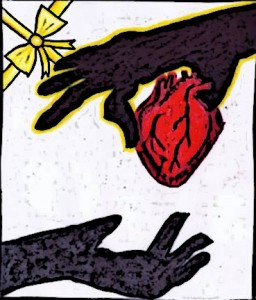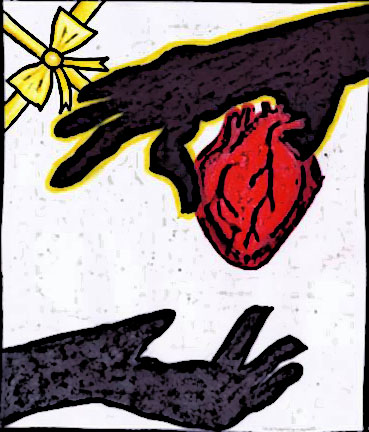When deciding whether you want to donate your organs after you die, many questions can arise.
Can I still move onto my afterlife if I’m not whole? Are my organs actually going to be useable? Can I pick what organs I want to keep? Should I give my body to science?

Third-year Laurier student Cinthya Fernandes struggles to even contemplate these questions as it means facing the fact she will one day die.
“There’s going to be an internal struggle for quite some time yet.”
According to The Gift of Life Network, in 2013/2014, 25 per cent of eligible Ontarians are registered to donate. Brantford’s current registration rate is above the provincial average, sitting at 32 per cent.
Cara Humeniuk, 19, advocates for people to register as on organ donor by hosting and volunteering with Give the Gift of Life events to raise awareness and by sharing her knowledge with the people around her.
“I have friends who have had kidney, pancreas and liver transplants and [I have seen] how their life has changed,” she said. “A lot of the time, people don’t realize how important organ donation is until they are somehow affected by it.”
“I think the biggest myth about organ donation is that doctors won’t work as hard to keep you alive if you have registered your consent,” Humeniuk said. Certainly, this is untrue as doctors will do their jobs to save their lives regardless of if you are a donor or not.
Registered donor Lynn Nguyen, 21, studies science at University of Waterloo. She immediately signed up to donate her body for both transplant and science but has since changed her mind.
In her anatomy class, she dissected a cat carcass and learned a lot about the body during the process. Even though she was not being disrespectful, she saw it as a body to learn from and not an animal. She recalls how difficult it was to cut through the skin and shared that, in her experience, “You don’t think, ‘This used to be alive.’”
Fernandes brings up another concern with donating to research: you are not quite sure how your body will be used. She mentions the fear that her body would be put on display at Body Worlds, the educational exhibit of real human corpses.
In contrast, registered donor Ilona Andersen, 23, believes donating to research is potentially even better than transplantation.
“It contributes to understanding, whereas if it’s just helping one person, then it’s not even for sure going to take. Whereas if it’s for science, there’s a pretty good chance it’s going to help at least somebody.”
Nguyen has no doubt that donating her body to science would result in more than “just a lesson”, it would contribute to medical knowledge on how to save lives in the future, such as in surgery.
Although Nguyen wants to change her registration to exclude science, she still will give her organs for transplant despite her parents’ wishes. Their Buddhist beliefs mean that Nguyen will be unable to continue to her afterlife if her body is not whole. But Nguyen is not religious and she believes since it is her body, it is her choice.
Some have a concern that they will be unable to have an open casket funeral if their organs are donated. But, for example, skin is not harvested from the face.
Many do not realize that simply signing your donor card is not helpful if it is unavailable when needed. Donors must sign up online at beadonor.ca or in person at Service Ontario, in order for your consent to register through your health card.
When you register, there is an option available to exclude particular organs: Kidneys, eyes, liver, skin, heart, lungs, bone and pancreas. So, if you have reservations about certain organs, you could still consent to donate the others. Nguyen, like many, is most hesitant about donating her eyes because it feels more “personal” and “creepy”.
“[Your eyes] are attached to your identity,” she said.
Beadonor.ca states that one donor can save up to eight lives and help up to 75 others with their organs and tissue. As of Sept. 30, 2014, 1,558 Ontarians need an organ transplant.
“You give the gift of life to patients waiting for a life-saving or life-enhancing transplant,” Humeniuk said. “If you had the chance to save or change someone’s life, wouldn’t you?”




